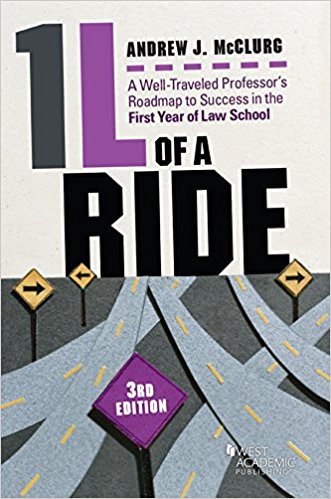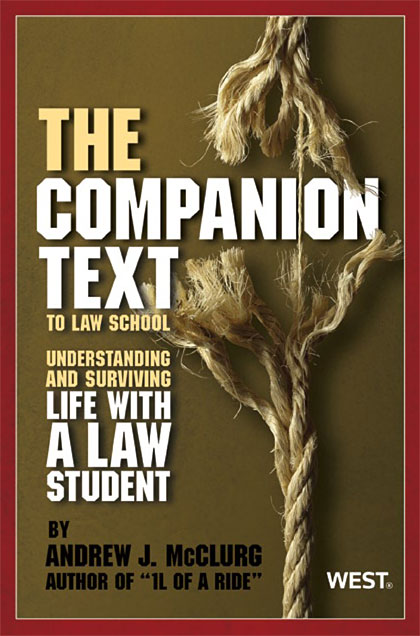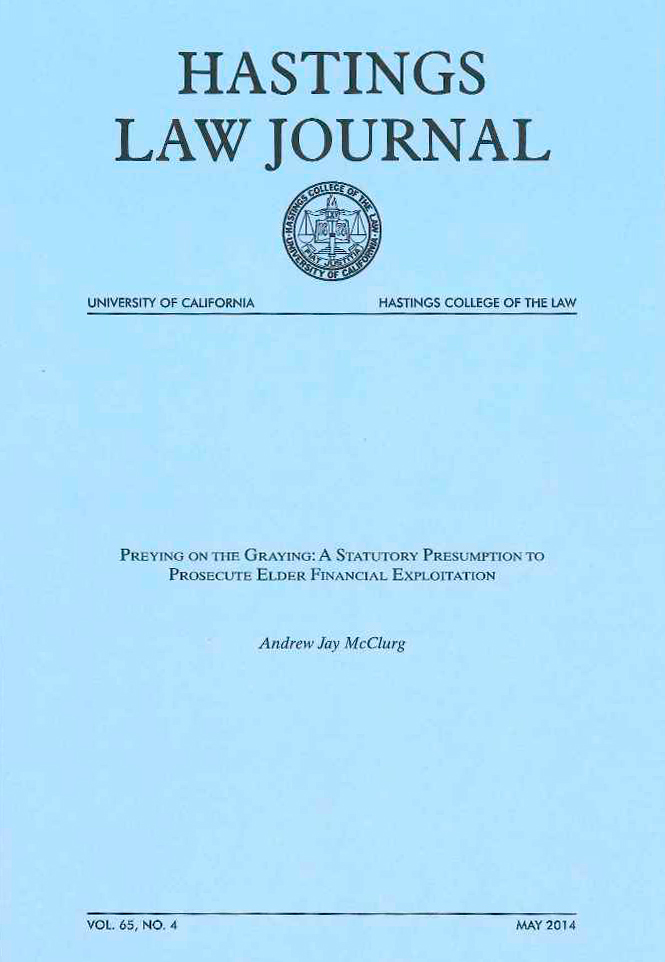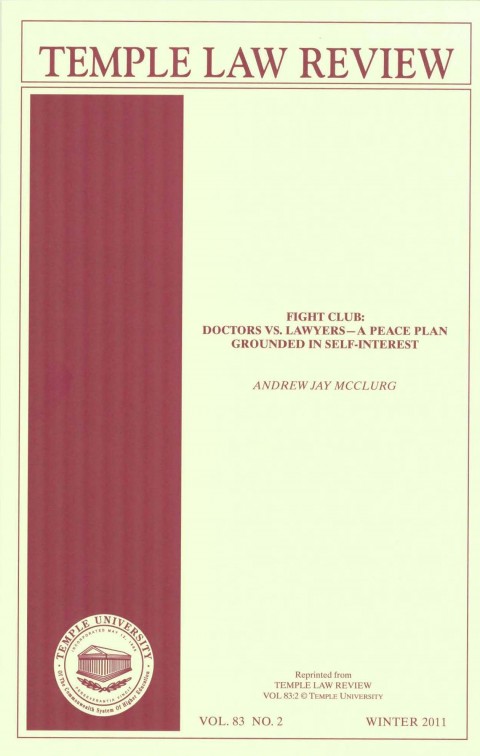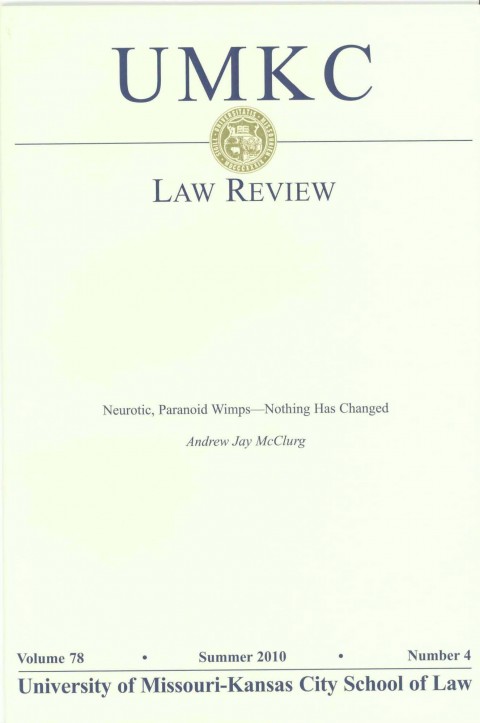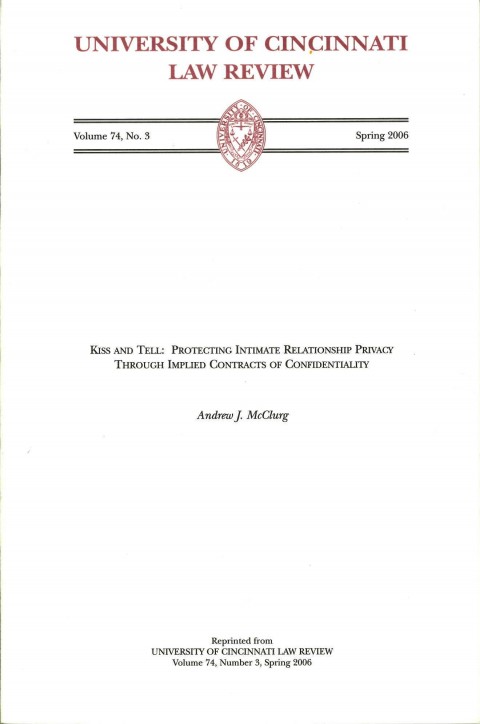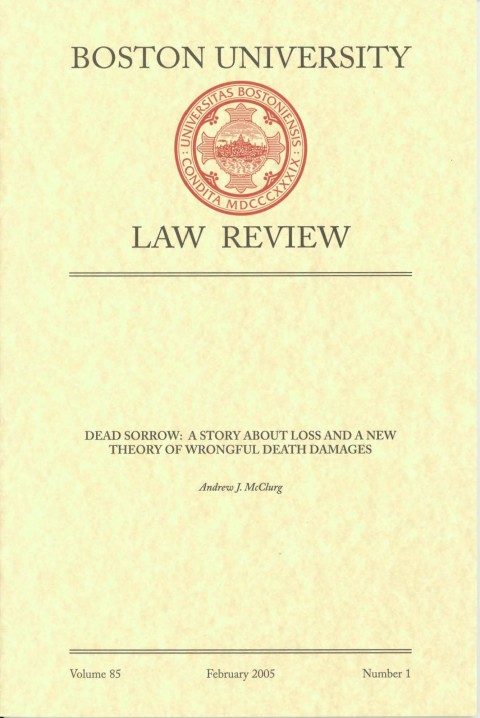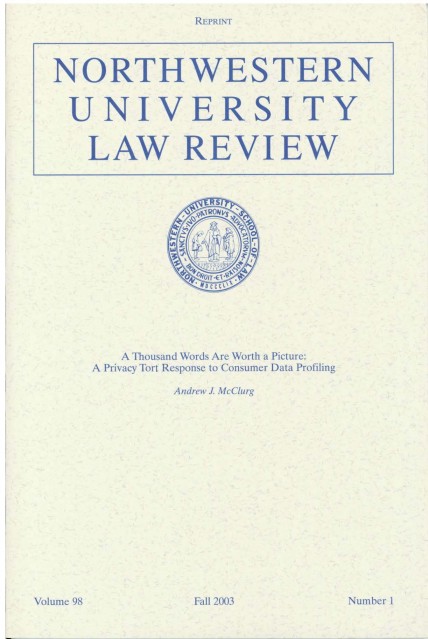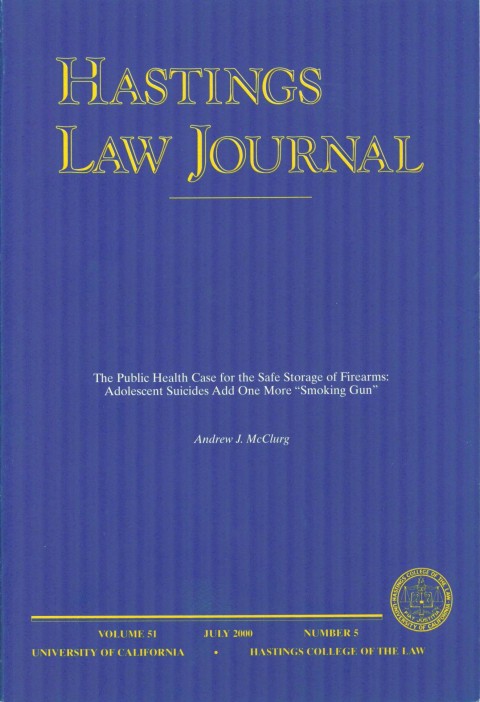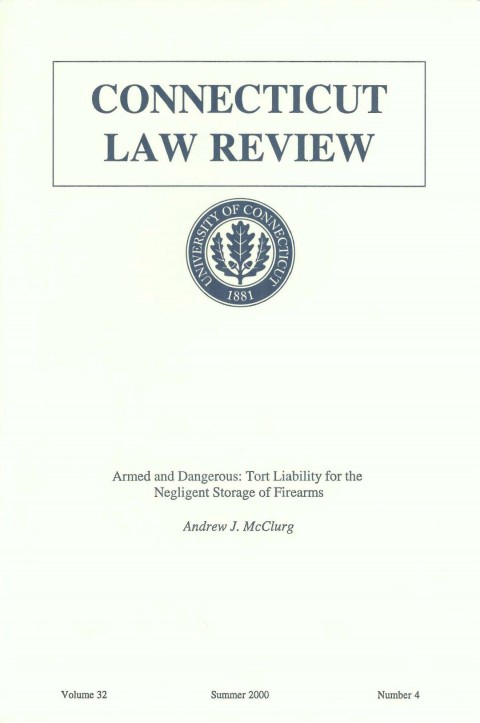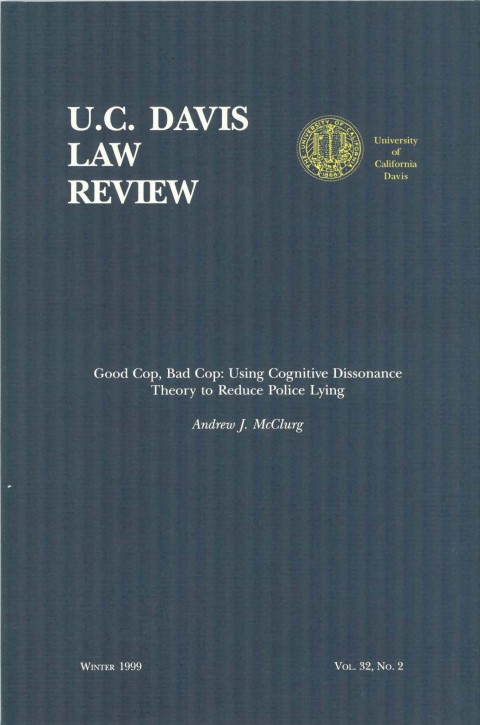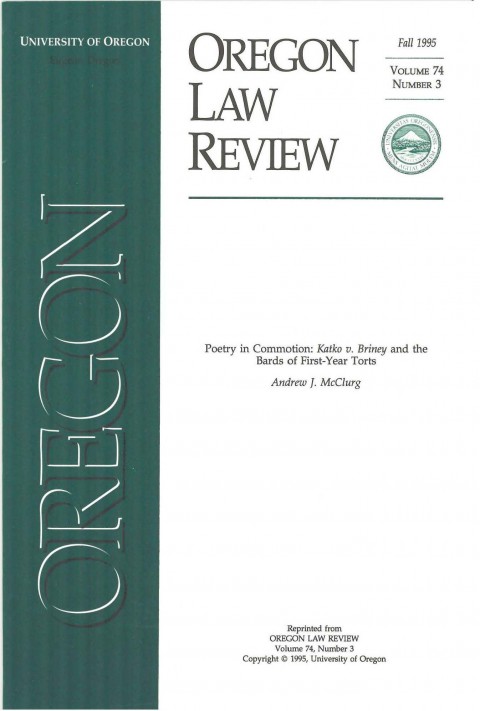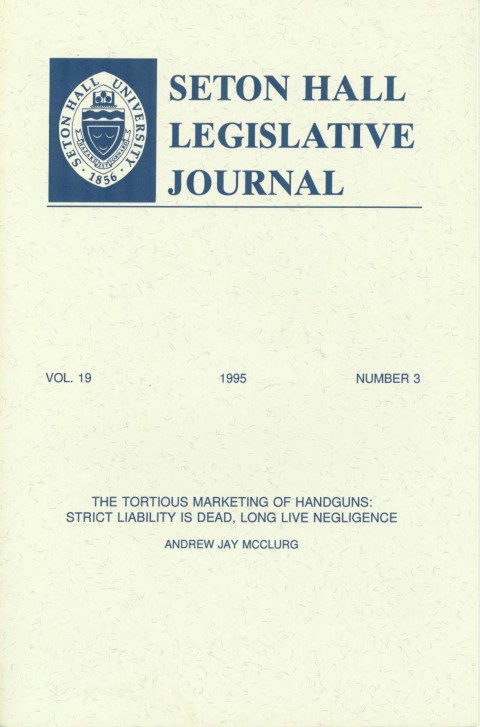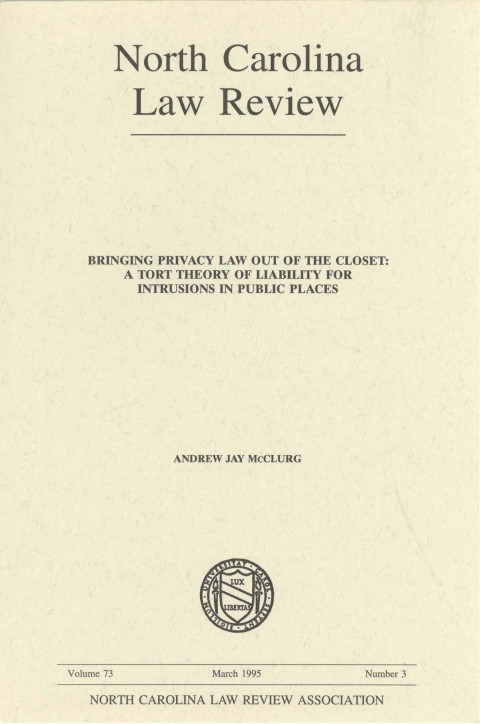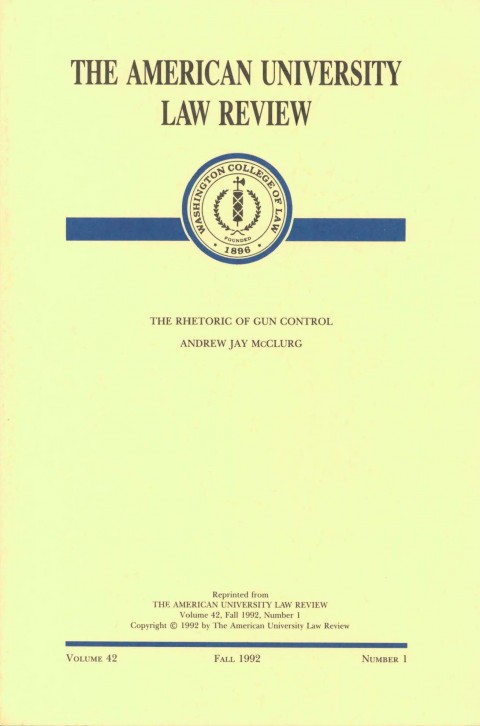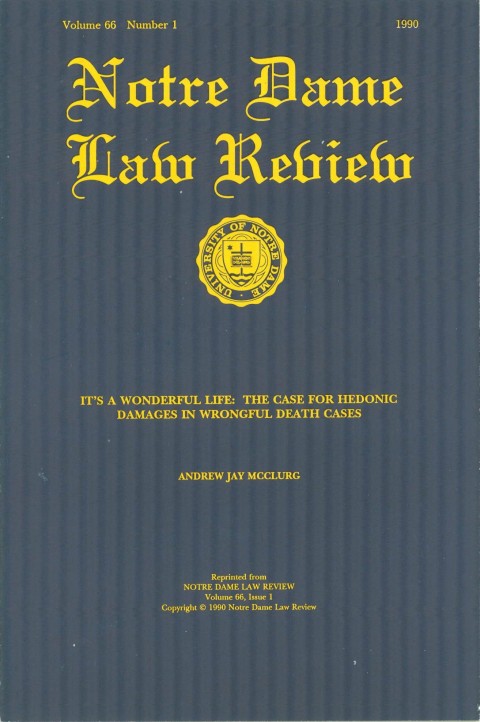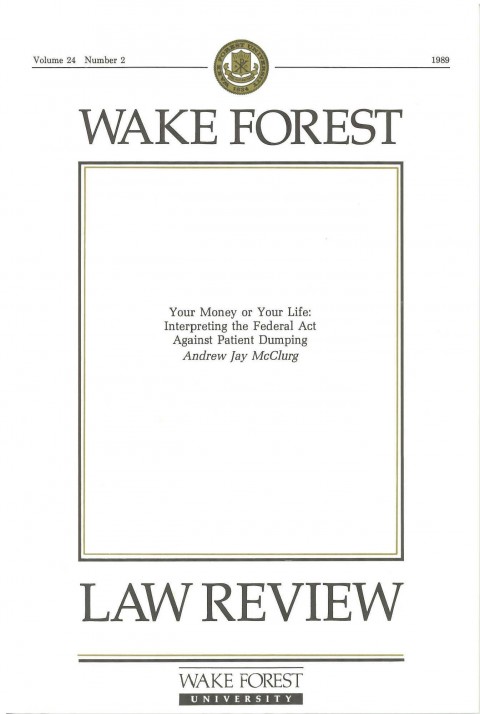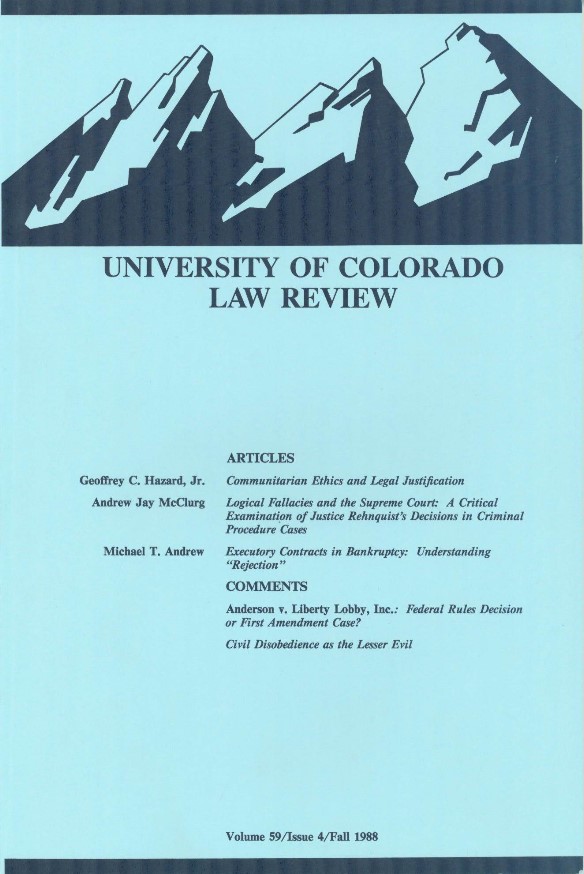December 20th, 2011 From Tom Walk, Wake Forest University College of Law, Date of event: circa 1980
One of my classmates was in a Marine Corps program and kept his hair in a buzz-cut. One day our Trusts professor called on him to recite a case. After about 30 seconds it was clear that the student had not read the case.
The prof stopped him and said “You are not prepared today, are you”? He responded “I’m sorry, Professor. I washed my hair last night and had to blow it dry.” The sheer ludicrousness of the answer left the professor just shaking his head as the rest of us rolled in the floor laughing.
November 27th, 2011 –From Jerry E. Stephens, University of Kansas School of Law, Date of event: Spring 1975
I had labor law at the University of Kansas under Professor Ray Goetz in the mid 1970s. Goetz was a truly outstanding teacher. He was able to refer to some momentous labor arbitration—particularly involving major league baseball—to spice up his lectures. But Ray Goetz could also be intimidating, particularly when he would look over the top of his reading glasses at students giving inane answers and comments.
He did have one redeeming virtue: he would call students for class recitation in classroom seating order. That gave students a rough estimate of the likelihood of being called on that class day and the next, and saved on some class preparation at times.
As it happened one rainy Saturday morning, the majority of those ahead of me skipped class. That left only two classmates ahead of me for class recitation that day. Neither did very well and Goetz was getting particularly exasperated.
Then he called on unprepared me. Just as I opened my mouth to answer there was a huge clap of thunder. Goetz probably sensed that I was unprepared. He looked directly at me and said that the thunder might have been the best answer I was going to muster that day. So he skipped me and turned to the next student in the row, who was much better prepared than I was.
October 30th, 2011 –From Peter Weinberg, University of the Witwatersrand Law School (Johannesburg), Date of Event: 1975
During a discussion on the causes of divorce during a Law of Persons lecture, our lecturer asked whether adultery was a criminal offense. One student, who shall remain nameless, put up his hand and said “No, professor, adultery has been abrogated by disuse.”
The professor thought for a moment, then replied “Mr. _____, I think that the criminality of adultery has been abrogated by disuse. The practice is, I believe, still very popular.”
October 30th, 2011 –From Gorden Penny, Texas Wesleyan School of Law, Date of event: Spring 2009
One student, while engaging in Socratic analysis with a female torts professor, referred to former Supreme Court Justice Sandra Day O’Connor as “MR. O’Connor.” His reference has gone down in the annals of “Absolutely What NOT to Say in Law School.”
October 30th, 2011 –From Jarod Morris, Oklahoma City University School of Law, Date of event: Fall 2004
During my Civil Procedure course at Oklahoma City University I was called upon to discuss the Burger King franchise case. The professor asked me a series of questions and I did quite well until the professor came to the question regarding jurisdiction for the suit and why one of the parties wanted to have the case decided in a particular jurisdiction.
I was stumped. I couldn’t think of anything so I responded, “I guess they just wanted to have it their way.” The class erupted in laughter and I was so zoned in the Socratic Method dialogue that I didn’t realize the humor in the statement for a few seconds. I couldn’t have come up with something like that if I tried.
October 30th, 2011 –From Fred C. Russcol, Albany Law School, Date of event: 1972
At Albany Law School in 1972, Professor Watkins was brilliant but prickly. One day, he called on my friend, John Keyes, who answered as best he could. After a moment, Professor Watkins said, “Mr. Keyes, can you tell me why that was the stupidest answer I’ve heard all semester?”
My friend responded, “Well, Professor, it’s the first time you’ve called on me!”
October 30th, 2011 –From Timothy DePeugh, Catholic University School of Law, Date of event: Fall 2003
My Contracts professor, the ultra-fabulous Professor Watson at Catholic University, is shiny bald. One day he called on me to discuss a case that involved jojoba fields in Arizona. I always choked and made a fool of myself in class when he asked me questions, so while I was fumbling around, he asked the class generally if anyone knew what jojoba was. Surprisingly, I actually knew the answer to that one, and said it’s a seed from which they extract an oil that’s often used as an ingredient in hair care products, especially shampoos and conditioners.
He said, “Well, Mr. DePeugh, I wouldn’t know anything about that.” And the whole class erupted in laughter. I had no idea what was so funny, so I sort of zoned out for a bit. He continued asking questions, and a few minutes later, while I was in the middle of answering another one of his questions, I blurted out, “Oh! Now I get it. It’s because you don’t use shampoo … oh no, I’m so sorry.” And once again, the class burst into laughter. He thanked me for giving the matter additional consideration.
October 30th, 2011 –From Ari Johnson, College of William & Mary Law School, Date of event: Fall 2004
Some law professors use the Socratic Method as a teaching device. Others use it to make sure their students are awake. But some professors play the Socratic Method as if it were a game of chess. My Torts professor was one of those. You could never win this game with him, of course. One day, he walked into class and the first words out of his mouth were “Mr. Johnson,” and he didn’t let up on me for fifteen minutes, hammering me with questions about the 1853 British case of Lumley v. Gye (in which a person was held liable for damages caused when he induced an opera singer to break her exclusive contract with an opera house).
Seeing that I was prepared, he threw me a curveball: “Mr. Johnson, who is your favorite singer?” Not having any authority to cite, I didn’t answer this question out of a fear that I’d somehow get it wrong. Of course, there is no wrong answer in the non-Socratic world to such a question, but there’s no such thing as a “reasonable law student” when it comes to irrational fear.
The prof finally asked my classmates to select a favorite singer for me and they decided on Bob Dylan. The professor continued to play the game out to its conclusion. This might be why some people choose boxing over law: 12 rounds can’t possibly be as bad as 25 minutes of the Socratic Method at its finest.
October 30th, 2011 –From Jeremiah Jarmin, Appalachian School of Law, Date of event: Spring 2005
It was during Contracts II when the class was discussing mental incapacity to enforce a contract. The professor brought up the concept of volitional impediment when dealing with a person suffering from a particular mental disorder. He asked the class, “What does volitional impediment mean?” One of the students raised his hand and began as if he were going to deliver some sort of long intelligent explanation of the words. He responded, “Volitional impediment is when … your volition is impeded.” The class lost it.
Then the professor asked what exactly the term “manic” meant, as when one is in a “manic” state of mind. A second student adopted the same line of deep reasoning used by the first student, saying, “Manic, you see … is the opposite … of depressive.”
The class lost it again. The professor then kindly removed the student from his seat, and had him switch seats with a student who was sitting next to the first student. He essentially created the peanut gallery.
When the professor asked again, “What does manic mean?,” both students raised their hands in unison. It was hysterical.
October 30th, 2011 –From John Schrier, University of Maryland School of Law, Date of event: 1980
The discussion of Socratic moments reminded me of a funny moment during Contracts I with Professor Young, back in 1980 at University of Maryland–Baltimore. Professor Young was grilling my classmate and apartment-mate on the facts of one case or another, trying to elicit some of the more basic principles of how a court will interpret the terms of a contract.
Having observed my buddy on a date the preceding evening, it came as no surprise that he was less than fully informed about the case under discussion. Pressing the point that contract terms will be construed against the drafting party, the professor asked: “And please tell us, Mr. F., who did draft the contract?”
While my apartment-mate was struggling to think of the answer, I couldn’t resist joking to another classmate, “The lawyers.” Unfortunately, I hadn’t expected that my desperate apartment-mate would overhear my joke and blurt it out in class as the answer to the question! He got a loud roar from the class and I got bathroom-cleaning duty for a week.
October 30th, 2011 –From Debby Toland, University of Oklahoma College of Law, Date of event: circa 1983
It was Income Tax I in the fifth semester of law school. I was sitting in Professor’s Teselle’s class, totally and utterly clueless as to: (1) Why was I in law school?; and (2) Why in god’s name was I in a tax class?
Of course, on that day the worse thing that could happen in tax class did happen. I was called on to answer a question. And, of course, it was a question that I had absolutely no idea how to answer.
The question was: “If a client came to you asking XXXX (X = some arcane question on the tax code) … what would be your advice?” In my best and most professional voice, I said: “I would acknowledge that the question was an interesting one outside my realm of expertise and refer them to Mr. Phillips who offices next door and who specializes in that area (in this case, my seat mate). Luckily Professor Teselle laughed and turned and said “Mr. Phillips, so how would YOU answer the question?” Needless to say Mr. Phillips was not as appreciative of my wit as were the professor and the rest of the class!
P.S. I did pass the course and have employed CPAs heavily from that day forward!
October 30th, 2011 –From Susan M. Harrelson, UNLV School of Law, Date of event: Summer 1999
Although I was responsible for my own share of funny law school moments, the best one I ever heard happened to a friend. During Property I, the professor was going all out, writing on the board: O conveys to A for life, and then to B and the heirs of his body, but if B ever drinks alcohol in a barn, then to C, D, X, Y and Z, etc.
When called upon to answer, “Who owns Blackacre?” my classmate asked, “May I please buy a vowel?”
October 30th, 2011 –From Caleb K. Aguillard, Louisiana State University Law Center, Date of event: Fall 2003
My story is from the fall semester of 2003. As it was my first semester, my section was taking Criminal Law and happened to be involved in a complicated discussion of sexual assault. In the instant case, it was explained to us that while perpetrating the crime in question, the would-be perpetrator was unable to “perform.” One of the more intelligent 1Ls in our class asked if that could be considered attempt. Seizing the moment, another chimed in, “Wouldn’t that be like pulling the trigger of an unloaded gun?” But before the stunned class could react, our professor replied, “Oh, it was loaded, just not cocked.”
McClurg footnote: Obviously, there’s nothing funny about sexual assault. The professor’s remark doesn’t strike me as making light of the crime, but let me know if you feel otherwise.
October 30th, 2011 –From Robert Campbell, Pacific Coast University McGeorge School of Law, Date of event: 2002
A funny Socratic moment occurred in our California Community Property course, when a classmate was briefing Boggs v. Boggs 520 U.S. 833 (1997).
Parties to the litigation were Sandra Boggs, widow of Isaac Boggs, and Isaac’s sons, Thomas F. Boggs, Harry M. Boggs, and David B. Boggs, who were the offspring of Issac Boggs and his first wife, Dorothy Boggs, also deceased.
This case held that ERISA preempts a state’s community-property law which might otherwise allow a non-participant spouse to make a testamentary transfer of an interest in an undistributed pension plan.
After an analysis of the facts, issues, rules and applications, our classmate was getting to the end of his recitation and declared, with relief: “In conclusion, Boggs won!”
October 30th, 2011 –From Janet Rae Montgomery, Stanford Law School, Date of event: 1973
By second semester, the demented students had been sorted out by the grades from the first semester—the demented ones were the ones with the As. The professors had also sorted out the ones it was safe to call on and the ones best left alone.
A visiting professor from the University of Chicago was teaching Civil Procedure, taking us through the federal rules of discovery. Usually this professor would have about five of us dangling in his Socratic questions, bouncing from one to the next of us.
The question of the day was: why were the written documents of the defendant readily available in discovery when it took a specific court order for blood or other corporeal evidence to be taken? Isn’t a diary recording our most secret thoughts at least as important as a blood sample? Why should Mr. Smith’s personal thoughts and records be at the mercy of a fishing expedition, when his DNA wasn’t?
Class was winding down. The five of us were wriggling on the line struggling to satisfy the professor’s demands, and all of us were failing. The bell rang. Books were being packed up but we weren’t going to be allowed to leave until this question had been answered. Then a hand went up.
Jonathan, a smile on his face and a gleam in his eye that I could see even from ten chairs away, decided to give it a shot.
“Well, professor, I guess the people who wrote these rules thought it was more important to be able to get into a person’s papers than into his pants.”
The Socratic method was never used in that class again.
October 30th, 2011 –From Susan Parkes, University of Tennessee College of Law, Date of event: circa 1980
I guess you could call this a socratic mishap.
In my third year at the University of Tennessee, I was taking Decedent’s Estates. The professor went up and down the rows of the class calling on us. When she got to the fellow sitting next to me, the questions and answers went very well and no problems were obvious. But I could tell my classmate was getting angrier with each remark.
As class ended we walked out of the room together and he exploded, “I can’t stand it when someone doesn’t look at me when they talk to me!”
I responded, “She was doing the best she can. She’s cross-eyed.”
October 30th, 2011 –From Vera Beretvas, Albany Law School, Date of event: Oct. 2002
In our Legal Profession class, Professor Connors was discussing situations in which a lawyer may withdraw from representation of a client.
He turned to me as it often happens when one sits in the first row, and said: “Could you, Vera, specify such a situation for us?”
He caught me in a moment when my thoughts were around an egg-salad versus a tuna sandwich for lunch. And I definitely wanted cucumbers on the side …
Out of at least five plausible answers, all I could think to say was: “Well, when a client doesn’t want to cooperate, and showers the lawyer with annoying phone calls …”
“Yes!” he said enthusiastically. “If, for example, I am a pain in the ass …,” and he paused, expecting me to carry the ball from there.
In my confused state, I just repeated after him: “Yes, you are a pain in the ass …” Unfortunately, my intonation accidentally dropped there, ending the sentence prematurely. It was too late for me to add something else to save the situation.
When the burst of laughter died down in the room, he looked at me with surprise in his eyes, and answered in a meditative, yet fully resigned manner: “Well, I guess, we can say I am …”
October 30th, 2011 –From Lara Gardner, Lewis and Clark Law School, Date of event: circa March, 2002
Last spring, in my Entertainment Law class, Professor Newell asked the class a question, Socratic style.
When no one answered after several moments, Professor Newell said, “Oh hell, I’ll just answer it myself. Sometimes that’s how this Socratic crap works.”
October 30th, 2011 –From J. Stephen Donovan, University of the Pacific McGeorge School of Law, Date of event: 1989
I was in the frat man/jock contingent in first year. When we got to a case about flammable pajamas in Torts, the professor asked, rhetorically, “On whom should we call today?”
I blurted “Falbo” at the same time the four guys behind me, including Falbo, knowing I had not read the case, announced “Donovan.” The prof, somewhat dismayed by this response to his clearly rhetorical question, chose me. After 45 minutes of Socratic back-and-forth during which I managed to hold my own, the prof finally asked something fact-specific about the case.
I responded, “I don’t know, I haven’t actually read it. That’s why I suggested you call on Mr. Falbo.”
He replied, “Too bad, you were doing quite well. You had me fooled. Very well … Mr. Falbo, please address my last question.” Then he proceeded to hang Falbo for the last 15 minutes.
McClurg footnote:Out of professorial curiosity, I wrote back asking the author, J. Stephen Donovan, how he managed to fake out the professor for 45 minutes when he hadn’t read the case. He replied that he wasn’t sure, but speculated it might have something to do with his being Irish.
October 30th, 2011 –From Ryan Arnold, Thomas M. Cooley Law School, Date of event: Fall 2001
This is a socratic story from Thomas M. Cooley Law School. It was my first term. I had almost made it through the first semester without getting called on until my prof called me out. After I had answered questions to most of the relevant facts, the prof began pushing me up in the corner by asking me irrelevant minute details. With the pressure building, without hesitation I said very calmly. “I MAY HAVE TO PHONE A FRIEND ON THAT ONE.”
The class fell out laughing. The prof told me I had better be ready next week. When I didn’t get called on, several fellow students thought the prof just forgot about it. When I received a low grade in the class I told the prof I thought he/she got the last laugh. The prof denied it to the end. Who knows?
October 30th, 2011 –From João Teixeira Freire, University of Lisbon College of Law, Date of event: 2001
This one happened last year, on a final exam of European Community Law, at the University of Lisbon, Portugal.
The professor, after asking a few simple questions that the student—who was very nervous—failed to answer, asked an even simpler one: “Where was the founding treaty of the European Community signed?”
The student tried to remember, but nothing would come to his mind, so the professor, almost desperate, said, “Okay, I’ll give you a hint. Do you like soccer?”
“Yes!” the student replied enthusiastically, as if grateful for a topic he could finally comprehend.
“Okay, great. Where does Batistuta play?”
The student answered promptly: “For Lazio!”
“So, then, the answer is …”
“The Treaty of Lazio!!!”
(The right answer was Treaty of Rome. To those less familiar with European soccer teams, Lazio is from that city.)
October 30th, 2011 –From Monica “Nic” Monroe, Catholic University School of Law, Date of of event: August 2000
Today is the first day of school of my second year. Looking at all the wide-eyed First Years wandering around the building I am reminded of my First Week one year ago.
We all find law school rather tense those first few days. Everyone is sizing up their classmates, wondering who will be the top students. One can’t help it. We all got good grades in college and most of us came here believing we were smart, articulate, and even witty. We live in fear of two things: BEING CALLED ON and (a fate worse than death) GIVING A DUMB ANSWER.
Our Lawyering Skills professor, Michael Koby, was speaking generally about the structure of law and government. He turns to a student, “Quickly, what are the three branches of the U.S. government?” She stares, blinks, and stares some more. Finally she shrugs, “I was a Biology major.”
The whole class lost it. Professor Koby smiled and stifled his own laugh. Finally, we settle down and he tries again. He talks her through the answer he wanted. Bless his heart, he even sang part of the “School House Rock” America episode—the song called “Three Ring Circus” describing the branches and their functions.
Looking back, this was the ice-breaker for Section B. Yes, some teased her about it. But, this was the first time our section laughed as a group, our first shared “funny law school story.” Her response and especially the professor’s response finally took the edge off. It set the tone for a demanding, yet never dull year-long course with an exceptional professor. One who taught us to “write like a lawyer” but also to Believe In and Laugh At Ourselves.
Professor Koby left Catholic for Washington University in St. Louis. For any of his students who might read this, I hope you appreciate the rare treasure you have in this professor.
October 30th, 2011 –From McClurg, University of Florida College of Law, Date of event: circa 1980
I decided to add a couple of my own stories from law school in the hope that you—the loyal website visitor—will be stimulated to send in your own stories.
Here’s a Socratic happening that many law students have perhaps dreamed about, but few would dare to implement. It occurred in my last semester of law school at the University of Florida. We were being taught criminal procedure by Professor Gerald Bennett.
Professor Bennett was conducting class in typical Socratic fashion one day when my seatmate and close friend, Mac McCarty, turned to me and whispered: “I’m sick of the Socratic method. If he calls on me I’m going to tell him that if I have anything relevant to say I’ll raise my hand.”
“Yeah, right,” I whispered back.
As fate would have it, at that second, these words boomed across the room: “Mr. McCarty, please state the facts in Betts v. Brady.”
It was all I could do to keep from choking on my laughter. I expected Mac’s bravado to dissolve quickly and sat waiting for him to begin reciting the facts. But he didn’t do it.
“Professor Bennett,” Mac said, “I feel I’ve reached the stage of my law school career where if I have anything relevant to say, I’ll raise my hand.”
As you might imagine, stunned silence and dropped jaws filled the room. We all sat perfectly still waiting for Professor Bennett’s response. Would he explode? Storm out of the room? Throw his casebook at Mac? To his credit, he did none of these things. He said calmly, “Well, Mr. McCarty, the exam is in two weeks. Let’s hope you think of something relevant to say by then.”
Then he looked at me and said, a bit more confrontationally, “Mr. McClurg—the facts of Betts v. Brady.”
A moment of truth had arrived. Should I risk my GPA to back up my best buddy in his act of civil disobedience?
“The petitioner was charged with robbery,” I said. “His request for counsel was denied by the trial court … blah, blah, blah.”
I got a better grade in the course, but always admired Mac for his guts. I don’t recommend his approach, especially to my students.
October 30th, 2011 –From Lynn Lisk, University of Arkansas School of Law at Little Rock, Date of event: unknown
One of my former students sent in this story about the legendary Professor Robert R. Wright, a former colleague of mine, now retired, at the University of Arkansas at Little Rock School of Law. Professor Wright, a leading property and land use expert, was the law school’s “Professor Kingsfield.” The students were terrified of him:
In first year Property, Professor Robert Wright called on someone to answer a question. The person told Professor Wright that they were sorry, they had not read the assignment and didn’t know the answer. So Professor Wright called on a second student. That person also stated they had not read the assignment and didn’t know the answer either (apparently this was the day after an important basketball game). Completely frustrated by now, Professor Wright “nominated” a third person to answer his question. This third person, obviously destined for greatness due to his ability to think on his feet, stated “I’m sorry, professor, I was studying with them last night.”
According to my source, Professor Wright shut his book and told the class it was dismissed for the day and to be ready for the next assignment on the syllabus since he would not be discussing this subject anymore in class. However, the issue did appear, in substantial part, on the final exam that semester.
|
Funny Law School Stories
For all its terror and tedium, law school can be a hilarious place. Everyone has a funny law school story. What’s your story?
|
Product Warning Labels
A variety of warning labels, some good, some silly and some just really odd. If you come encounter a funny or interesting product warning label, please send it along.
|
Tortland

Tortland collects interesting tort cases, warning labels, and photos of potential torts. Raise risk awareness. Play "Spot the Tort." |
Weird Patents
Think it’s really hard to get a patent? Think again.
|
Legal Oddities
From the simply curious to the downright bizarre, a collection of amusing law-related artifacts.
|
Spot the Tort
Have fun and make the world a safer place. Send in pictures of dangerous conditions you stumble upon (figuratively only, we hope) out there in Tortland.
|
Legal Education
Collecting any and all amusing tidbits related to legal education.
|
Harmless Error
McClurg's twisted legal humor column ran for more than four years
in the American Bar Association Journal.
|
|
|


